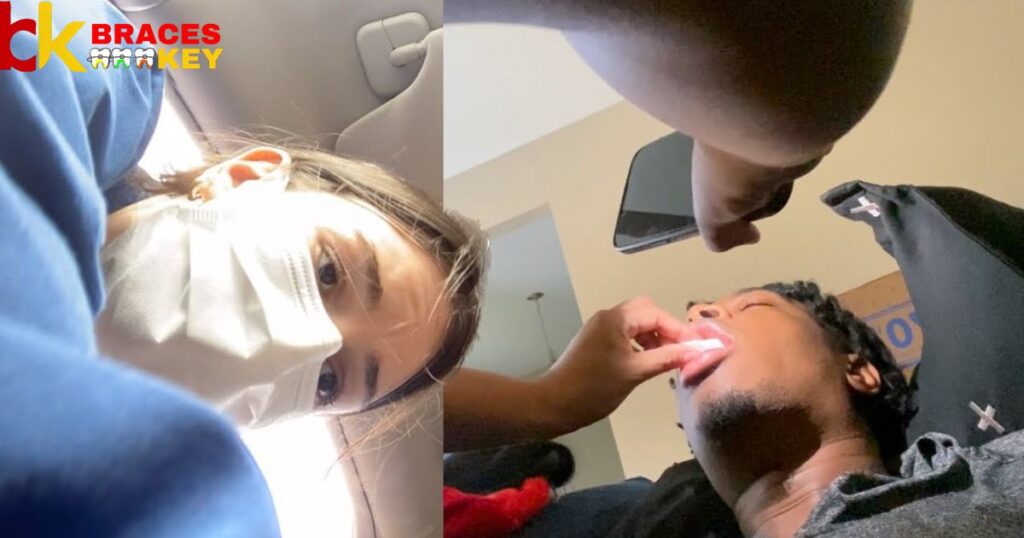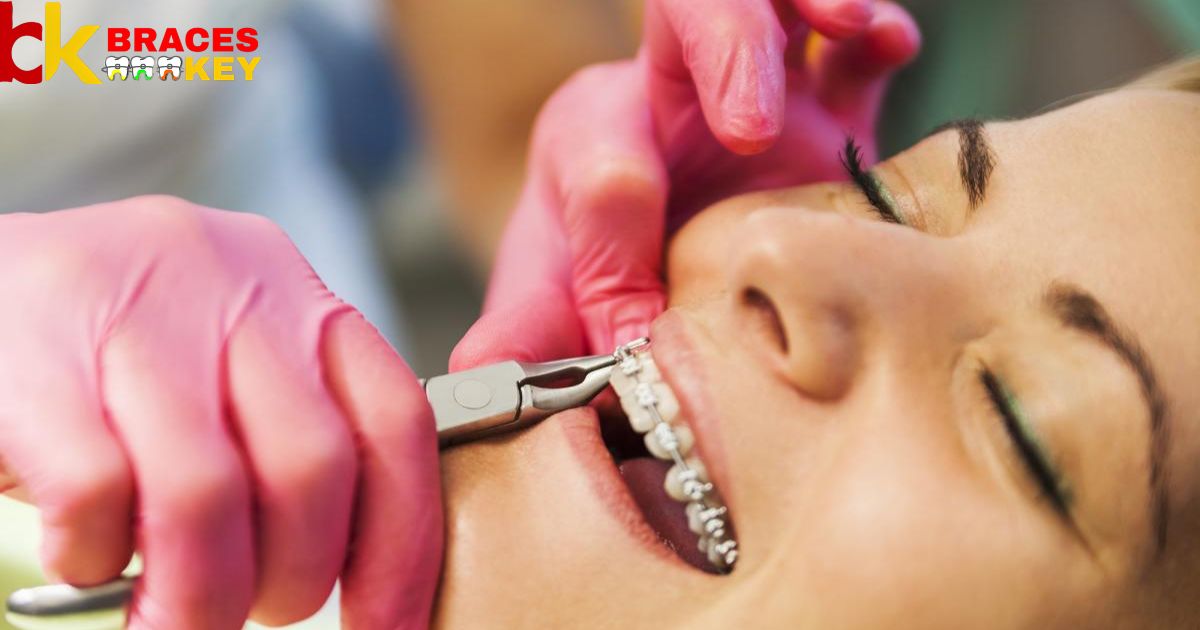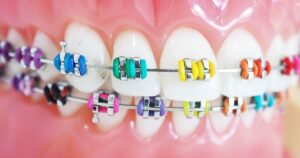When pondering braces, the fate of wisdom teeth looms large. The correlation between these molars and orthodontic treatments often surfaces queries. The need for their removal stands as a common but not mandatory step for achieving aligned smiles with braces.
Delving into the query Do You Have To Get Wisdom Teeth Removed For Braces?, this exploration unveils the intricate relationship between wisdom teeth and achieving a flawless smile with braces. Uncover the essential insights surrounding this dental conundrum in the pursuit of orthodontic perfection.
Wisdom teeth and braces often dance a tango in dental debates. While not always mandatory, wisdom teeth removal might be recommended to avoid alignment issues during braces treatment. Individual dental configurations determine the necessity, but consultation with an orthodontist unveils the best path for a winning smile.
Get Braces For Wisdom Teeth
Getting braces for wisdom teeth can be a transformative experience. The process involves careful evaluation by a dental professional to determine the necessity and the best approach. These braces are tailored to assist in aligning the wisdom teeth, potentially preventing overcrowding or misalignment issues in the future. It’s a proactive step toward ensuring your dental health remains in top-notch condition.
The decision to get braces for your wisdom teeth is a proactive move toward maintaining dental harmony. These braces aid in guiding the growth and alignment of these late-blooming teeth, averting potential complications down the road. Consulting with an orthodontist will provide insights into the specific benefits tailored to your dental needs, fostering a healthy and aligned smile. Wondering for more unique information on Is It Necessary To Remove 4 Teeth For Braces?
Putting Braces On Wisdom Teeth
Bracing wisdom teeth is an uncommon practice due to their location and late eruption. Placing braces on these molars could complicate their growth and cause discomfort. Orthodontists generally avoid this procedure as it might impede natural alignment and lead to potential dental issues.
Considering Braces for Wisdom Teeth
Bracing wisdom teeth involves evaluating their alignment to ensure they don’t disrupt the bite or neighboring teeth. Though rare, if misaligned, braces might be considered to guide their growth, aligning them harmoniously within the dental arch. This proactive approach can prevent potential crowding or impaction, ensuring a healthier dental structure in the long run.
Get My Wisdom Teeth Removed With Braces

Deciding to remove my wisdom teeth while having braces was a thoughtful decision. The orthodontist recommended this to prevent any misalignment caused by emerging wisdom teeth. It was a bit daunting at first, but the procedure went smoothly, and the braces were adjusted accordingly. Now, with the wisdom teeth gone, my orthodontic treatment feels more streamlined.
Getting my wisdom teeth extracted alongside braces was a strategic move. The orthodontist assured me it would help maintain the progress of my braces. The recovery was manageable, and the adjustments made to my braces afterward were minimal. The combined process seemed daunting, but it’s ensuring a more aligned and healthy smile in the long run.
Orthodontic Considerations
Orthodontic considerations play a pivotal role in determining the best course for aligning teeth. Evaluating bite patterns, dental misalignments, and jaw structure aids orthodontists in devising personalized treatment plans. Understanding these factors ensures effective orthodontic interventions, such as braces or aligners, to achieve optimal dental alignment.
When exploring orthodontic options, factors like age, oral health, and individual preferences are vital. Customized treatment plans address specific dental issues, ensuring better oral functionality and aesthetics. Orthodontic consultations provide insights into various techniques, empowering individuals to make informed decisions regarding their dental health for a confident smile.
Wisdom Teeth Impact
Wisdom teeth, often emerging in late adolescence, can cause discomfort due to inadequate space in the jaw. This leads to impaction, where they may grow at odd angles or remain trapped beneath the gum line. Such conditions trigger pain, swelling, and potential infection, necessitating extraction to alleviate the discomfort.
The impact of wisdom teeth extends beyond discomfort, occasionally influencing the alignment of existing teeth. Their emergence can exert pressure, causing neighboring teeth to shift and leading to overcrowding or misalignment. Orthodontic problems may arise, requiring intervention to preserve dental health and prevent complications.
Treatment Personalization
Personalizing treatments is like tailoring a suit—crafted for your unique needs. It’s a bespoke approach, not one-size-fits-all, ensuring precision and effectiveness. By analyzing individual factors, from genetics to lifestyle, treatment paths are sculpted, maximizing outcomes. The aim? To make healthcare as tailored and effective as your favorite custom-made attire.
In the realm of healthcare, treatment personalization is the art of fine-tuning therapies. It’s akin to a compass, navigating through individual nuances to optimize care. Through advancements like AI and precision medicine, each person becomes a case in itself. This customization elevates treatment efficacy, forging a path where precision meets patient-centric care.
Braces And Wisdom Teeth Removal

Braces can work wonders in aligning your smile, but the arrival of wisdom teeth often throws a twist. As these molars emerge, they might disrupt the orthodontic progress, requiring evaluation. In some cases, wisdom teeth removal might be suggested to prevent misalignment issues or crowding.
Navigating the alignment journey with braces can encounter a roadblock when wisdom teeth decide to make an appearance. The orthodontic treatment might face challenges due to these latecomers, prompting discussions about their extraction. Wisdom teeth removal is sometimes a proactive step to maintain the beautiful symmetry achieved through braces.
I Need Braces After Wisdom Teeth Removal
After getting my wisdom teeth removed, the dentist recommended braces to align my teeth properly. It was a surprise, but the procedure made sense to prevent any shifting in my dental structure. Embracing the idea, I saw it as an opportunity for a perfect smile.
Post wisdom teeth extraction, the idea of braces felt unexpected yet sensible. It was like a follow-up step for optimal dental alignment, ensuring no complications in the future. Accepting this, I looked forward to the braces, knowing they’d pave the way for a confident grin.
Wisdom Teeth Removal Reddit
Reddit threads on wisdom teeth removal offer a spectrum of experiences and advice, ranging from personal stories of recovery to detailed discussions about different procedures and post-operative care. Users share insights, tips, and support, creating a valuable resource for those navigating the journey of wisdom teeth extraction.
Wisdom Teeth Removal Can I Get Invisalign
Considering Invisalign after wisdom teeth removal? While timing can vary, it’s generally advisable to wait for complete healing post-surgery before starting Invisalign treatment. Your dentist or orthodontist can guide you best, ensuring the ideal timing for a seamless and effective Invisalign experience post-wisdom teeth extraction.
FAQ’s
Is it necessary to remove wisdom teeth for braces?
No, it’s not always necessary to remove wisdom teeth for braces; it depends on individual dental circumstances.
Can you get braces with missing wisdom teeth?
Yes, it’s possible to get braces even if you have missing wisdom teeth.
Which teeth are removed for braces?
Wisdom teeth are typically removed before braces, but braces themselves don’t require teeth to be extracted; they work by shifting and aligning existing teeth.
Can I have braces without tooth extraction?
Yes, it’s possible to have braces without needing tooth extraction, depending on your individual dental situation and alignment needs.
Conclusion
The necessity of removing wisdom teeth before braces varies case by case. While some might require extraction due to overcrowding or alignment issues, others may not. Consulting with an orthodontist is crucial; they’ll assess individual needs to determine if wisdom teeth removal is necessary before initiating the braces journey.
Do You Have To Get Wisdom Teeth Removed For Braces? remains a common query among those considering orthodontic treatment. The answer hinges on individual dental circumstances. While extraction might be necessary for some, it’s not a blanket requirement. Consulting an orthodontist is pivotal to ascertain whether wisdom teeth removal precedes the braces process.








